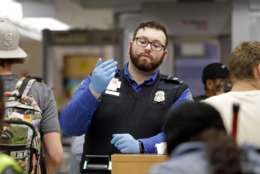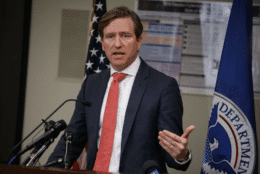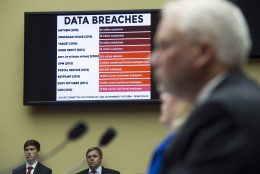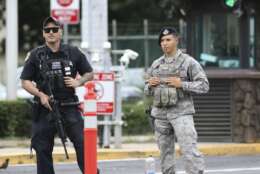Cybersecurity and Infrastructure Security Agency
-
In today's Federal Newscast, a new report from the Government Accountability Office shows that while diversity has increased among workers at the State Department overall, that has not been the case for upper level managers.
February 26, 2020 -
The caucuses in Iowa showed it doesn't require foreign adversaries or political enemies to screw up voting.
February 19, 2020 -
In today's Federal Newscast, Senator Josh Hawley unveils a plan to give the Federal Trade Commission more authority to help regulate companies like Facebook and Google.
February 12, 2020 -
In today's Federal Newscast, media reports indicate that J. David Patterson is removing himself from consideration.
February 05, 2020 -
In today's Federal Newscast, the House Homeland Security Committee passed the Rights for Transportation Security Officers Act. The bill would move screeners at the Transportation Security Administration under the General Schedule, a move that would likely mean a pay raise.
January 30, 2020 -
CISA thinks of itself as the nation's risk advisor. To that end, Director Chris Krebs shared five areas of focus for the next few years, and six tips for a successful cybersecurity program.
January 23, 2020 -
In today's Federal Newscast, a new page on Oversight.gov tracks IG vacancies.
January 15, 2020 -
CISA's emergency directive gives agencies mere days to assess the scope of the vulnerability to its systems, and 10 days to patch or remedy all its affected endpoints.
January 14, 2020 -
The commission is looking at a strategy built around deterrence through punishment. If retaliation for cyber attacks are swift, decisive, consistent and public adversaries will be less likely to instigate attacks.
January 09, 2020 -
Recent tension between the U.S. and Iran have given CISA an opportunity to test its cyber threat intelligence-sharing capabilities in the new year.
January 08, 2020 -
David Patterson was a deputy Defense Department comptroller during the George W. Bush administration.
January 07, 2020 -
In today's Federal Newscast, the Office of Personnel Management's inspector general says the agency is not keeping a good enough eye on the companies its contracted for identity theft protection.
January 06, 2020 -
In today's Federal Newscast, following recent shootings on military bases, the Marines is allowing its law enforcement officers to carry concealed firearms.
January 03, 2020 -
In today's Federal Newscast, if the fiscal 2020 budget deal gets signed into law, the Cybersecurity and Infrastructure Security Agency will receive $2 billion, $334 million more than it received in 2019.
December 18, 2019 -
If a chain is only as strong as the weakest link, then small business in the federal or industrial supply chain needs to be forged a little tougher.
December 10, 2019














